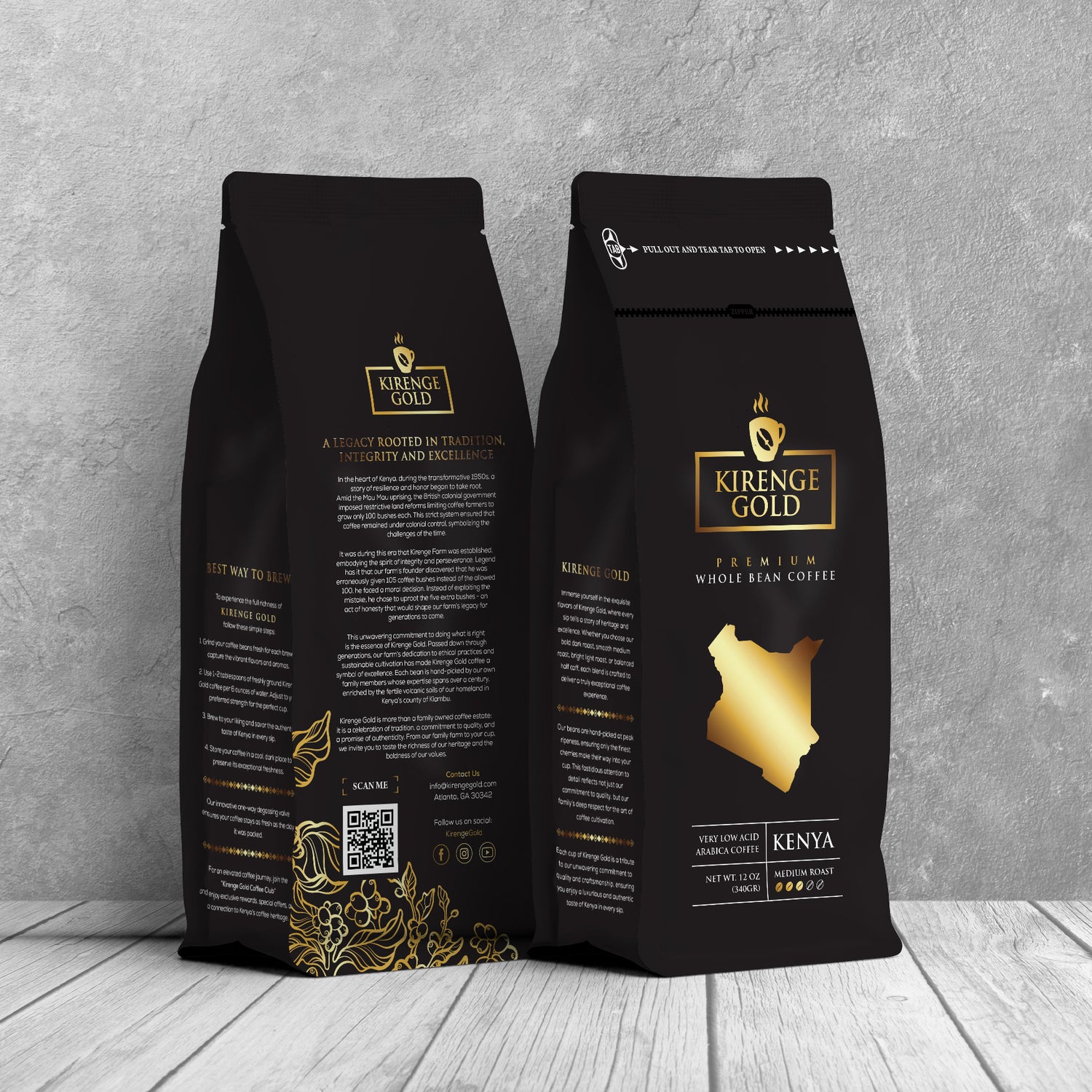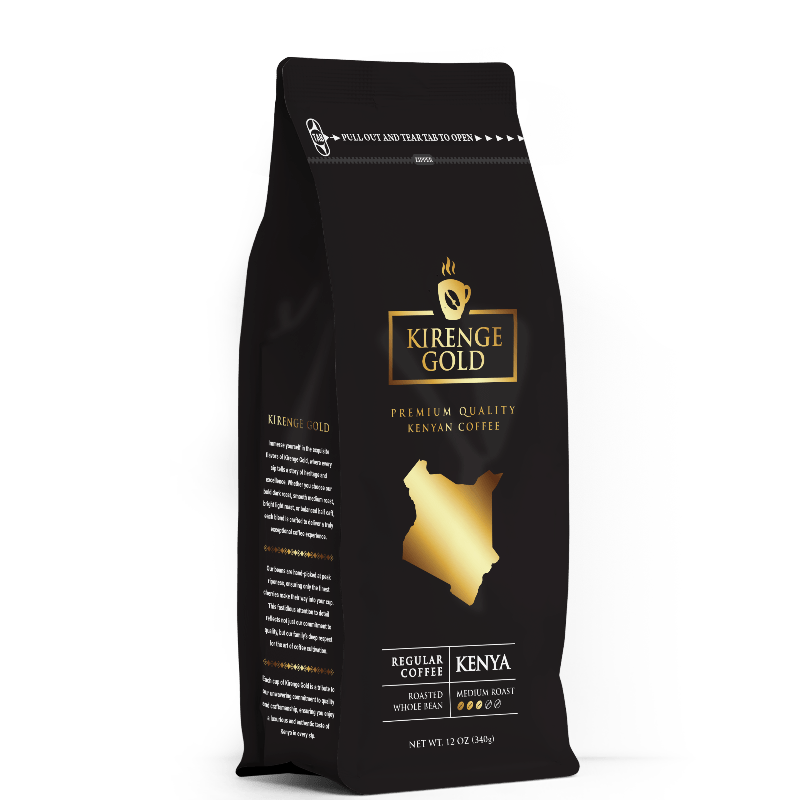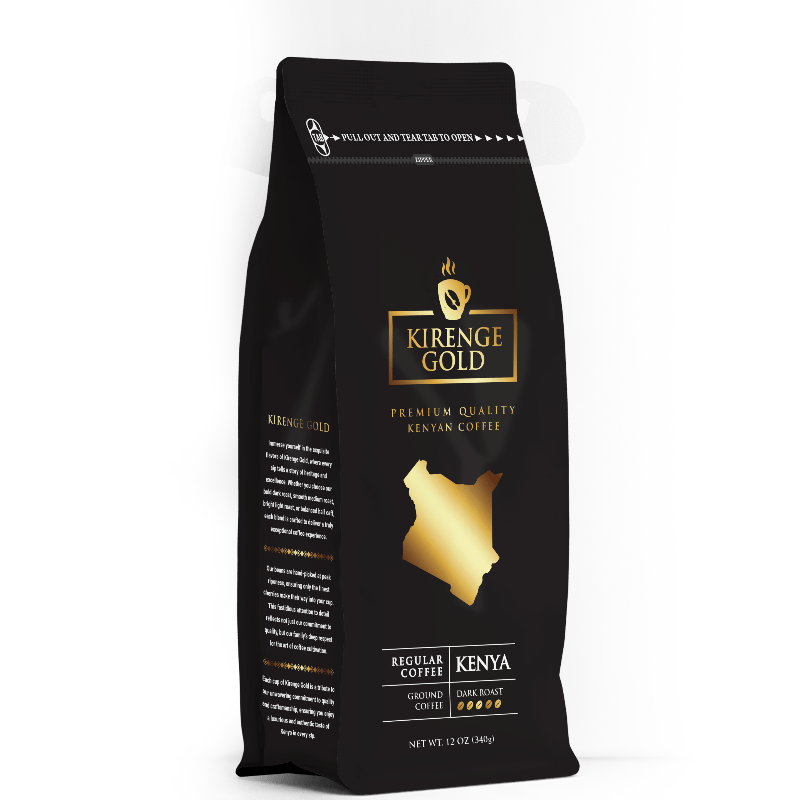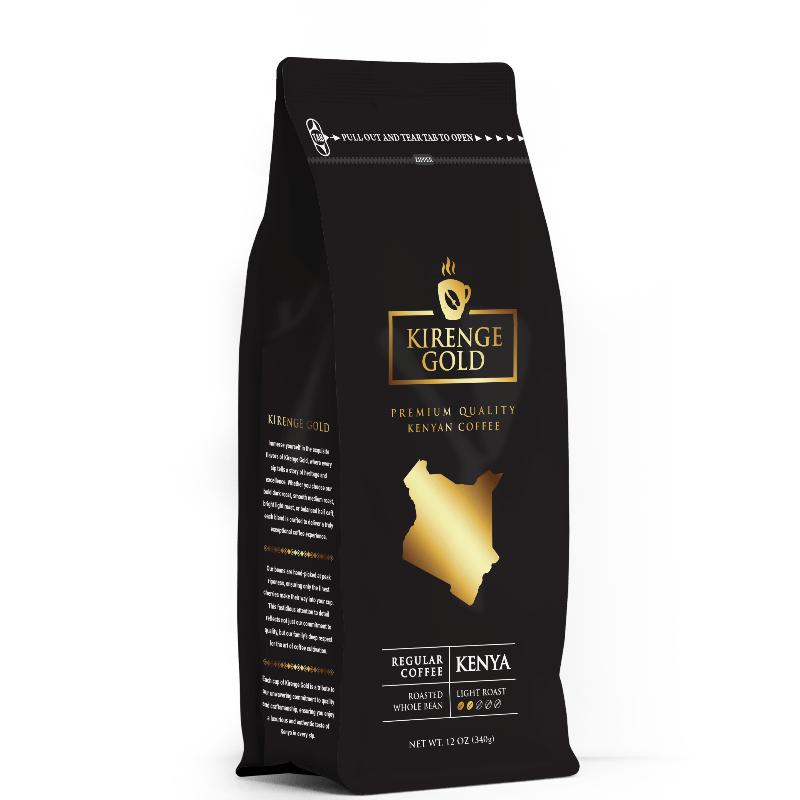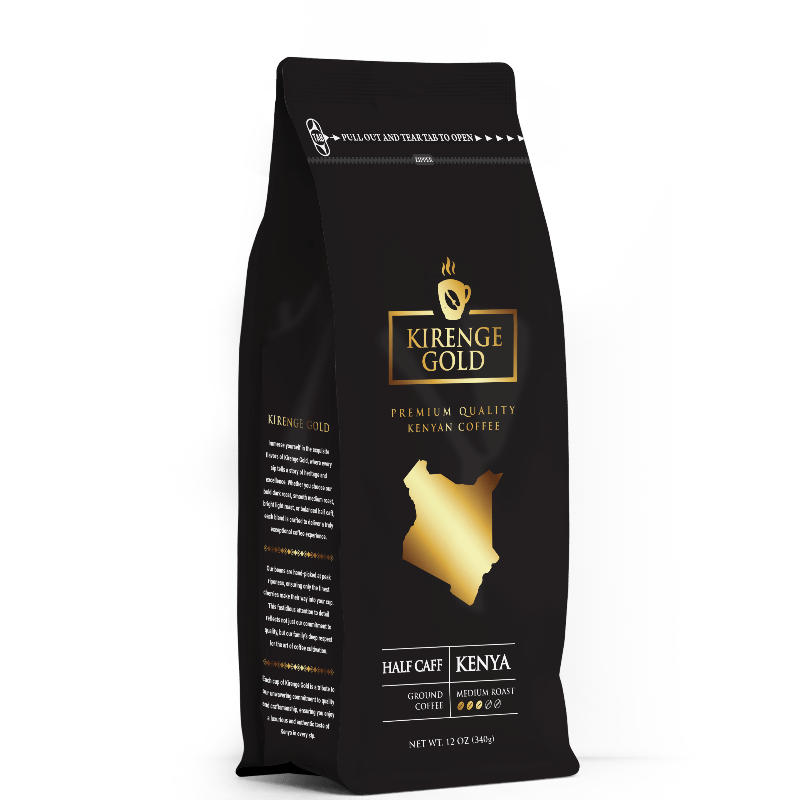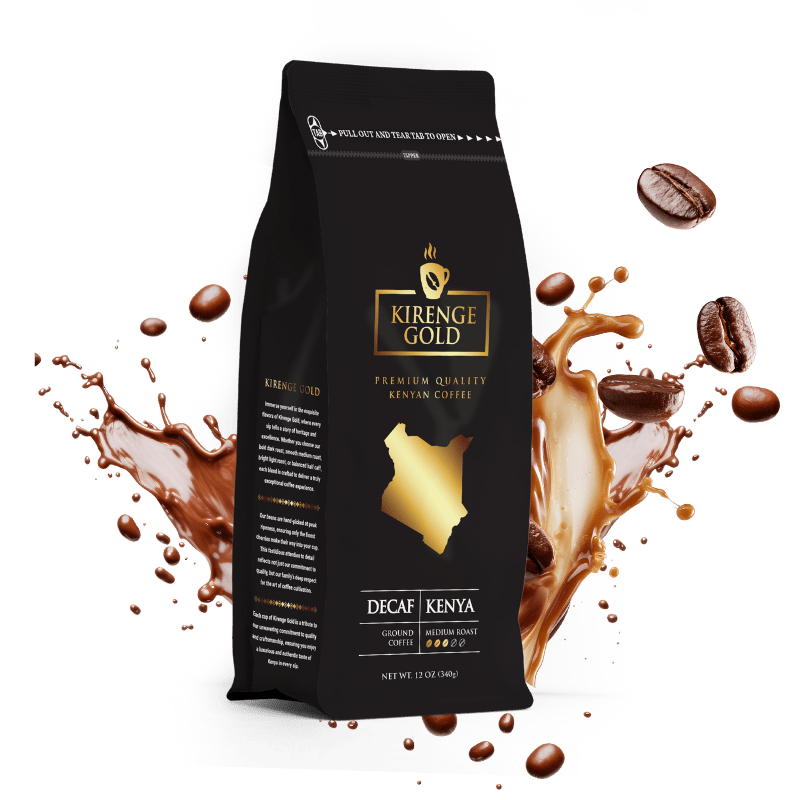
How Much Coffee Is Too Much? Stay Energized Without the Side Effects
For many of us, that first cup of Kirenge Gold is a cherished morning ritual—a warm, fragrant start to the day that provides a much-needed energy boost. But as the day goes on, it’s easy to wonder: "Am I drinking too much coffee?"
While coffee from the roasted beans of Coffea species is enjoyed globally and offers several health benefits, overindulgence can lead to unwanted side effects. Finding your balance is key to staying energized without the jitters, sleepless nights, or digestive discomfort.
So, how do you find your sweet spot? Let’s dive into caffeine management and help you enjoy your coffee to the fullest.
The Golden Number: What Experts Say
The general consensus from reputable health organizations such as the Mayo Clinic and the U.S. Food and Drug Administration (FDA) is that most healthy adults can safely consume up to 400 milligrams (mg) of caffeine per day. To put that into perspective, this is roughly the amount of caffeine in four cups of brewed coffee, 10 cans of cola, or two "energy shot" drinks.
This 400 mg daily limit is a good guideline, but remember, it's just an average. Your tolerance can vary widely based on factors like your body weight, metabolism (influenced by genetics and liver function), medication use, age, and overall health conditions. Individuals sensitive to stimulants may experience effects at lower doses. See verywellhealth, Pmc
Special Considerations for Certain Groups:
- Pregnant or Breastfeeding Women: As noted by Eatingwell, it's advised to limit caffeine intake to less than 200 mg daily. Exceeding this can increase risks like low birth weight, premature labor, or miscarriage. Caffeine also takes significantly longer to clear from the body during pregnancy, potentially up to 14 hours.
- Adolescents (12-17 years): Medstarhealth recommends that teenagers consume less than 100 mg of caffeine per day. Higher intake can interfere with development, disrupt sleep, and lead to anxiety or mood swings.
- Children (under 12 years): Many health experts recommend no known safe amount of caffeine, advising children to avoid it altogether due to its lack of nutritional value and potential negative impacts on health, development, and sleep.
- Highly Concentrated Caffeine: Powdered or liquid caffeine forms are extremely dangerous. Just one teaspoon of powdered caffeine can equal about 28 cups of coffee. Such high concentrations can cause severe health problems, including restlessness, nervousness, irritability, delirium, tremors, convulsions, rapid heart rate, and even death.
Decoding Your Cup: Caffeine Content in Common Beverages
The actual caffeine content in beverages can vary widely based on factors like bean type, roast level, and brewing method according to Mayo clinic. Here’s a rough breakdown of average caffeine content:
- Brewed Coffee: An 8-ounce cup typically contains 95-200 mg.4 A 12-ounce cup can range from 113 to 247 mg, with an average around 150.5 mg.13 Even decaffeinated coffee isn't entirely caffeine-free, usually containing 2-15 mg per 8-ounce cup.
- Espresso (1 fluid ounce shot): Approximately 47-75 mg. Many popular coffee shop drinks use double shots or more, significantly increasing total caffeine.
- Brewed Tea (8 ounces): Varies significantly, from 15-80 mg. Black tea (30-50 mg) and Yerba Mate (40-80 mg) generally have more caffeine than green (20-40 mg) or white tea (15-20 mg). Most herbal teas are caffeine-free.
- Cola (12 ounces): Typically 34-55 mg.
- Energy Drinks (8-16 ounces): Can range widely from 70-357 mg. Energy "shots" are highly concentrated, with some containing 200 mg in just 2 ounces. Children and adolescents should avoid energy drinks due to their high caffeine and sugar content.

Beverages with caffeine
Remember, the 400 mg daily limit refers to the total caffeine from all sources throughout the day, including teas, sodas, energy drinks, and some foods like chocolate. Caffeine has a mean half-life of about 5-6 hours, meaning half of it is still in your system hours after consumption, which can accumulate if you drink it continuously throughout the day.
Kirenge Gold is committed to transparency, providing information on the specific characteristics of our blends, allowing you to make informed choices.
How to Spot the Signs of "Too Much" Coffee
Pay attention to your body. It's the best indicator of whether you've crossed the line. Here are some common signs that you might be over-caffeinated, as reported by health professionals:
- Jitters or Anxiety: The most classic sign. Feeling restless, nervous, irritable, or experiencing heightened anxiety are common indicators.
- Insomnia: Caffeine is a stimulant that can interfere with both falling asleep and staying asleep by blocking adenosine, a natural sleep-promoting chemical. Its half-life is approximately 5-6 hours, meaning a significant amount can still be in your system many hours after consumption, disrupting restorative sleep.
- Stomach Upset: While coffee's pH is mildly acidic (4.8-6.0), similar to saliva or milk, digestive discomfort often stems from specific compounds. Chlorogenic acids (CGAs) break down during roasting into compounds like quinic acid, which contributes to bitterness and has been linked to stomach irritation, especially in darker roasts or Robusta beans. Some compounds, like N-methylpyridinium (NMP), can even reduce gastric acid production.
- Increased Heart Rate: Caffeine can stimulate the sympathetic nervous system, leading to a temporary increase in heart rate and blood pressure. Palpitations or a feeling of a racing heart should not be ignored.
- Headaches: While caffeine can sometimes alleviate headaches, excessive intake can paradoxically cause rebound headaches when the effects wear off or lead to withdrawal headaches.
- Frequent Urination: As a mild diuretic, caffeine can increase urine output. While often mild in regular consumers, it's important to adequately replenish fluids to prevent potential dehydration.
- Beyond Acidity: Understanding Coffee's Impact on Digestion
The idea that coffee's acidity is the sole cause of stomach discomfort is an oversimplification. While coffee is mildly acidic, its digestive impact is more complex, influenced by various chemical compounds and their interactions.
Chlorogenic acids (CGAs), natural antioxidants in coffee, break down during roasting into compounds like quinic acid. Quinic acid contributes to bitterness and is linked to stomach irritation, especially for sensitive individuals. Its levels tend to increase with darker roasts and in Robusta beans. Conversely, some compounds like N-methylpyridinium (NMP), formed during roasting, can reduce gastric acid production.
Bean type and roast level significantly influence:
- Arabica coffee generally contains flavor-enhancing acids (like citric and malic acids) that are gentler on the stomach. Arabica also has lower CGAs than Robusta, leading to less quinic acid formation.
- Light Roasts retain high CGAs, giving bright flavors, but their breakdown can produce irritants.
- Medium Roasts often offer a good balance, reducing irritants without losing flavor.
- Dark Roasts, despite lower "perceived" acidity, can have higher levels of quinic acid, potentially leading to a harsher brew and more discomfort for sensitive stomachs.
- For those with sensitive stomachs, exploring Kirenge Gold's range of Arabica beans and medium roasts may be beneficial. Additionally, avoiding coffee on an empty stomach can help.
Kirenge Gold's Guide to Smarter Caffeine Management
We're all about helping you savor every sip of our premium coffee, sourced with care and roasted to perfection in Atlanta, Georgia, for delivery across the US. Here are some practical tips to help you manage your caffeine intake and stay balanced:
- Start with the Right Brew: Begin your day with a perfectly brewed cup of Kirenge Gold. Explore our range of single-origin coffees and blends. If you're looking to manage your caffeine, consider our decaf options, like Kirenge Gold's Decaf Mountain Blend, later in the day without compromising on taste. Remember, decaf still contains a small amount of caffeine (2-15 mg per cup).
- Know Your Timing: Avoid consuming significant amounts of caffeine at least six hours before your planned bedtime. This allows your body sufficient time to metabolize the caffeine and minimizes its impact on your sleep quality, which is crucial for overall well-being.
- Hydrate, Hydrate, Hydrate: For every cup of coffee you enjoy, make a conscious effort to drink a glass of water. This helps counteract caffeine's mild diuretic effect and keeps you properly hydrated throughout the day.
- Listen to Your Body: This is the most critical advice. Pay attention to how different amounts of caffeine affect you. If you experience any of the negative side effects, reduce your intake. Consider keeping a coffee journal to track your consumption and any associated symptoms.
- Be Mindful of Other Sources: Remember that caffeine is present in other beverages (teas, sodas, energy drinks) and even some foods (like chocolate). Factor these sources into your daily total to avoid exceeding your tolerance.
- Consider Half-Caff: If you enjoy the ritual of multiple cups but want to reduce your caffeine intake, try blending regular and decaffeinated Kirenge Gold beans for a delicious half-caff option.

Important Considerations: Who Should Be Cautious with Caffeine?
While coffee can be a beneficial part of many healthy lifestyles, certain individuals and specific health conditions necessitate caution or complete avoidance of caffeine.
- High Caffeine Sensitivity: Even small amounts can cause rapid heartbeat, jitters, nervousness, insomnia, digestive issues, and anxiety.
- Heart Conditions: Caffeine can temporarily increase heart rate and blood pressure. If you have hypertension, arrhythmia, coronary artery disease, or are prone to atrial fibrillation, consult your cardiologist before regular coffee consumption.
- Anxiety Disorders: As a central nervous system stimulant, caffeine can worsen symptoms like panic attacks, racing thoughts, and restlessness.
- Chronic Insomnia or Sleep Disorders: Caffeine blocks sleep-promoting chemicals, significantly disrupting sleep cycles. Even morning coffee can contribute to ongoing sleep problems.
- Osteoporosis: Excessive coffee intake (more than 3-4 cups a day) may reduce calcium absorption, potentially contributing to lower bone density, especially if your diet is already low in calcium.
- If you have any underlying health conditions, are taking medications, or experience persistent negative symptoms related to caffeine, it is crucial to consult your healthcare provider before making significant changes to your caffeine intake.
The Bottom Line: Savoring Every Sip of Kirenge Gold
Coffee, especially the high-quality beans offered by Kirenge Gold, is a wonderful, complex beverage that can enhance your life in many ways, from providing an energy boost to offering rich flavors and aromas. By being mindful of your intake, understanding your tolerance, and listening to your body's signals, you can continue to enjoy the exceptional experience of Kirenge Gold coffee without any of the undesirable side effects.
Brew smart, stay energized, and savor every delightful moment. Explore our Coffee Collection in Atlanta, Georgia, and enjoy premium Kenyan coffee delivered directly to your door anywhere in the US.
Share

